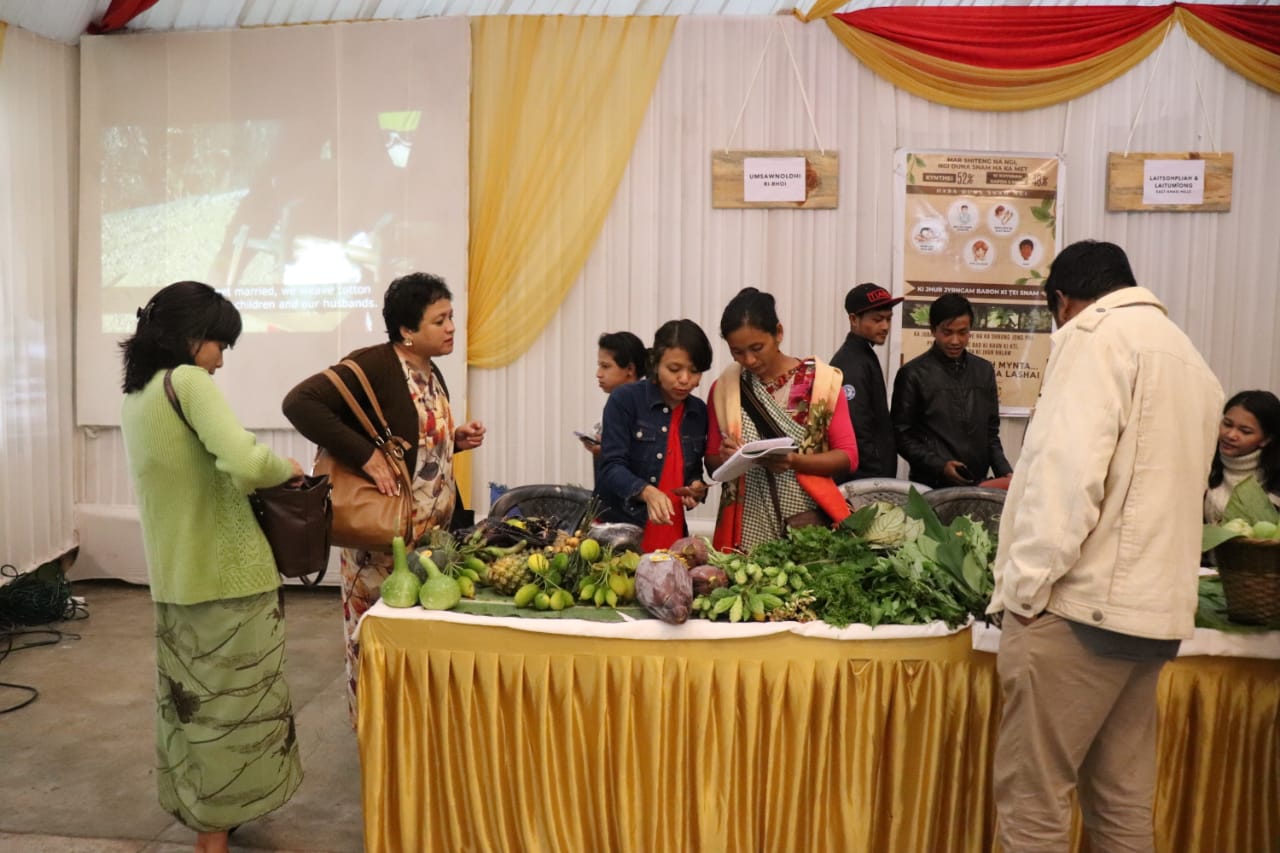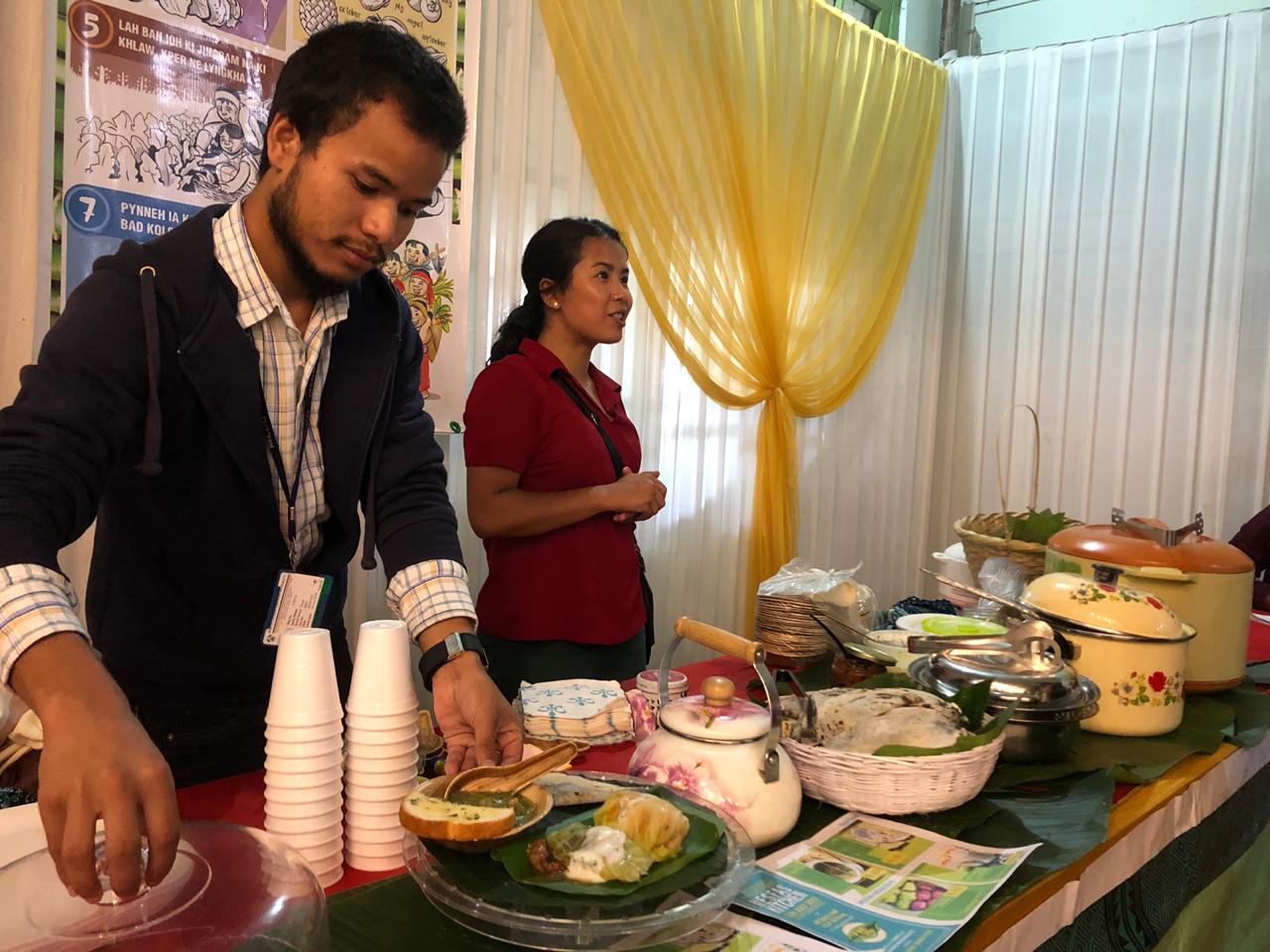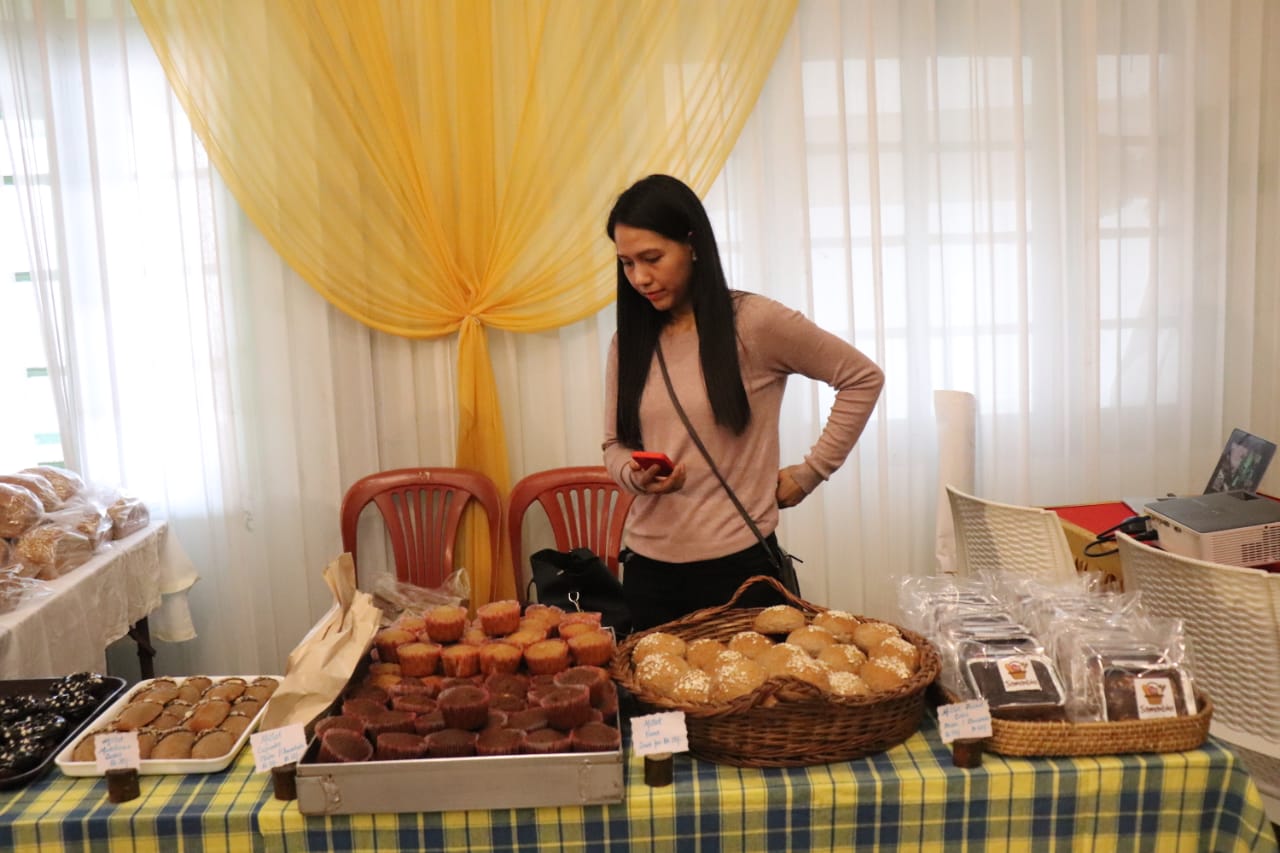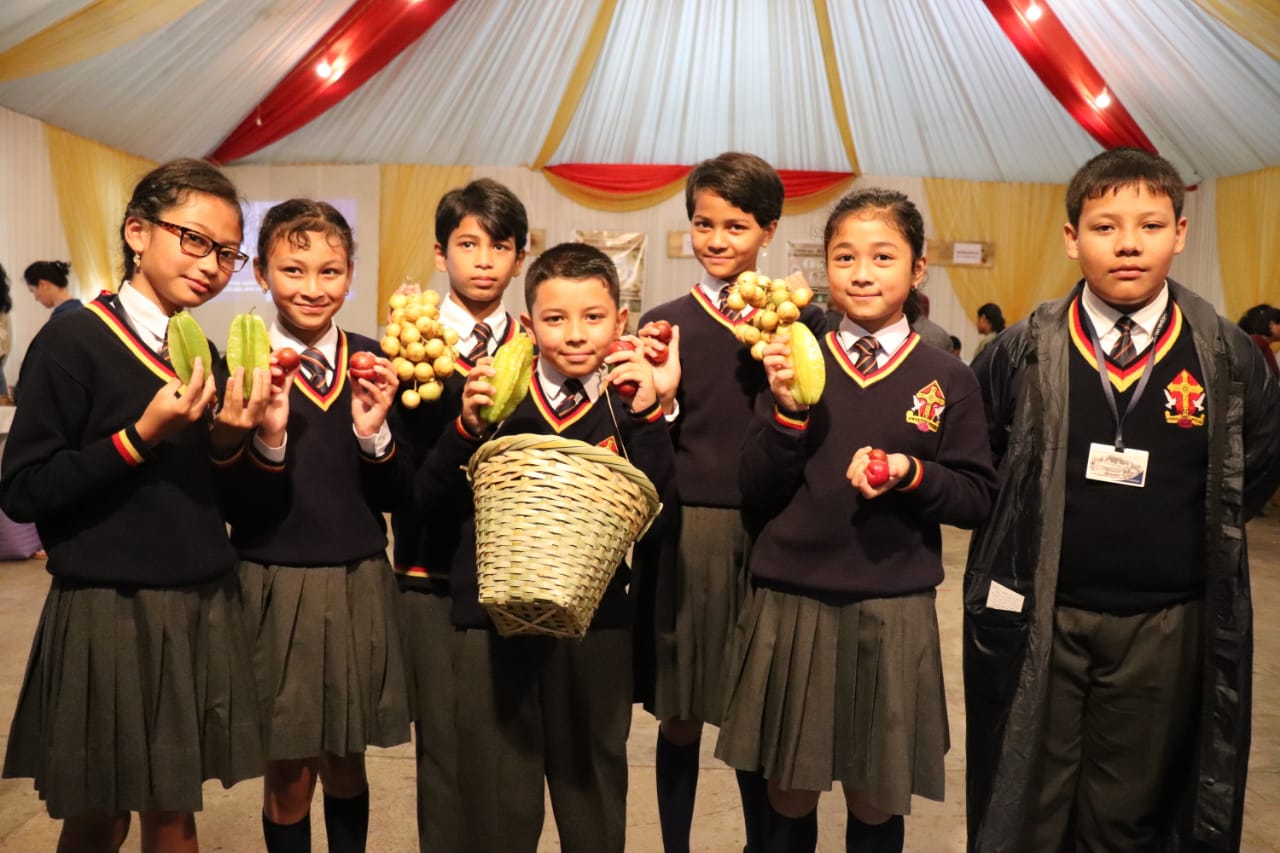Four communities from Meghalaya gathered at All Saints Hall on July 12, 2019 for the Mei-Ramew Farmers’ Market, which was organised by the North East Slow Food and Agrobiodiversity Society. The market showcased various chemical-free produce, wild edible plants and plants which were cultivated from the community members’ home gardens.
The four communities include Laitumiong, Laitsohpliah, Umsawnoldhi and Nongwah.
Lucy Khongniang, a custodian farmer from Laitumiong, “I feel quite proud that NESFAS has chosen us farmers to pass down the knowledge about the various indigenous food system, that we can also pass down later on to the future generations so that they can revive and sustain the system.”
“If we get the chance to showcase our products in events like these, we can show the people the importance of indigenous food system which also brings good health to the people,” Kristina Rani, another custodian farmer from Nongwah, said.
Apart from the vegetable stalls, NESFAS Kitchen also set up a food stall where they sold Ja doh – Jaud, Ja doh Syiar, sohsaw jarain with doh syiar, piscot with nei, kajor with nei, jamyrdoh chutney and sohrynkham pickle.
The E’sal Meghalaya group also participated in the market where they set up a food stall that focused on Garo dishes only. The menu included Do’o tangsek pura, Jakep, cabbage roll dumplings and special brewed red tea.
Nocy Marak, co-founder of E’sal, said, “NESFAS has taken a great initiative with the Farmer’s Market and has created a good platform for me to give out a modern progressive form of healthy food.”
Baked goods were also sold at the market. However, the baked goods were made using only millet and no flour. Millet is a cereal crop and is a healthier substitute for flour. Naphisamanbha Mawroh, baker and owner of Samanbha Bakery, said, “I think that by taking the step forward by promoting local food, NESFAS wants us to take a step back to our roots.”
Iarika Syiem, a church worker in Nongthymmai, said, “NESFAS has done a good job by creating awareness about the benefits and needs of eating local food.” She added, “I hope that eating local food can be a step that very individual can take and NESFAS helps the individuals take a step forward by promoting such events.”
The NESFAS team also organized several activities related to indigenous food systems and nutritional campaign for the Class VI students of All Saints School. Prantika Deb, a student, said, “I like to help my grandmother in our kitchen garden. I am and will always support the green campaign.”
 Translate
Translate








